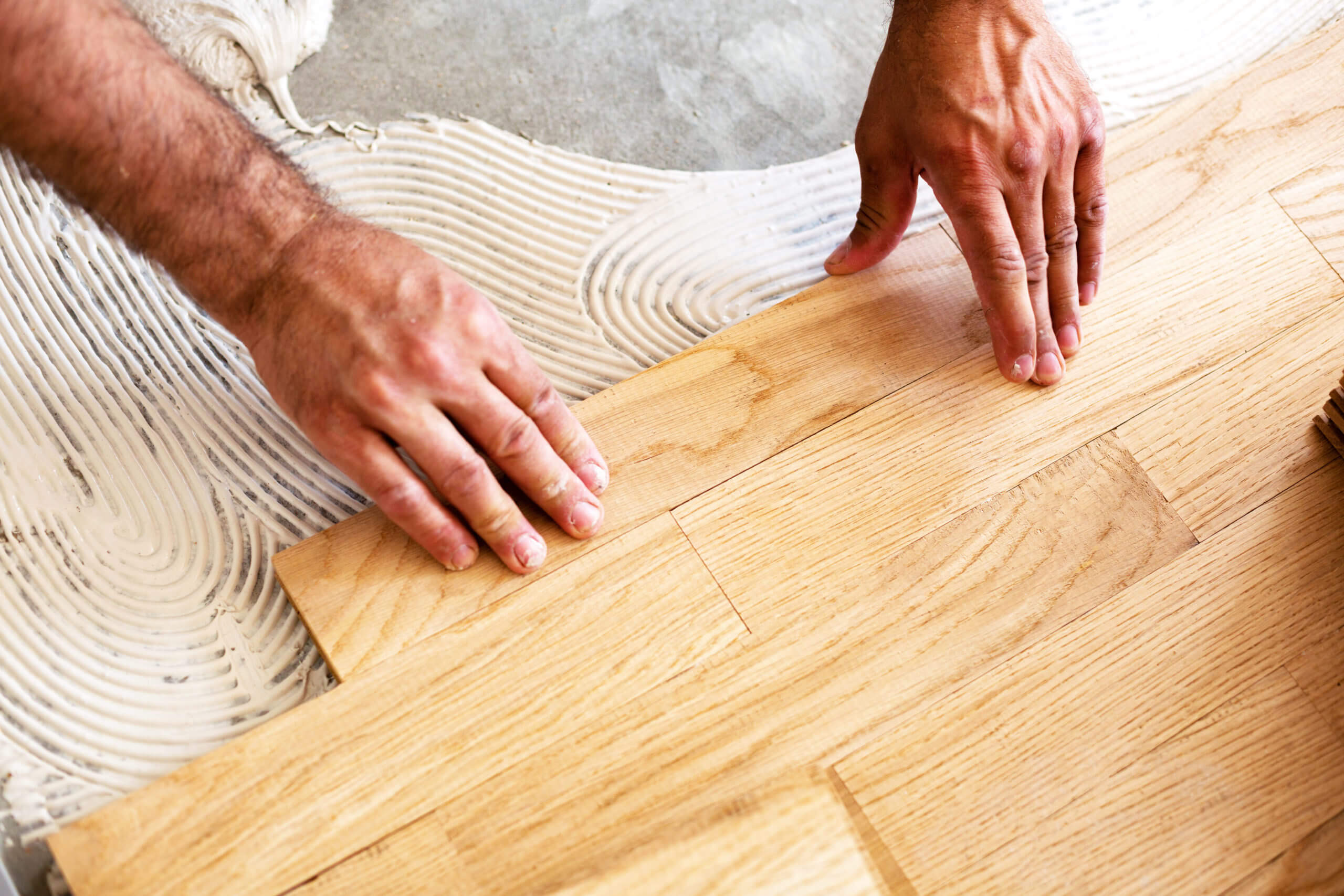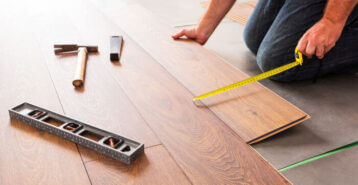Are you doing a flooring project?
Modernize can pair you with three to four pros in your area, so you can compare options and save time and money.
Renovating your home’s flooring can be a complicated process. There are many decisions to be made, from picking out what type of flooring works best in your kitchen, bathroom, or living room, to finding a reliable flooring contractor who can handle the job. However, you now are on the other side of many of those crucial choices. You have narrowed down the best types of flooring for your home and vetted flooring contractors for your project. Now it is time to think about costs, financing, and payment plans for your flooring remodel.
Financing your Flooring Project
The heavy lifting is almost over. All that is left before you can begin enjoying your new flooring is to figure out the best way to pay for your flooring renovation project. Financing flooring can be easy or challenging depending on the type of flooring you want to install.
New flooring costs can run the gamut from affordable to incredibly expensive depending on the type of material you choose and how much flooring you want to have installed in your home. Your renovation project could cost a few thousand dollars for new carpet and padding in parts of the house, or tens of thousands for natural stone laid in the hallways, entryway, bathrooms and kitchen.
Regardless of cost, new flooring can bring homeowners a deeper appreciation of their residences. In the sections below you can find more information on baseline costs you’ll need to plan for to kick off your flooring installation project.
The Downlow on the Down Payment
Once you have settled on a reliable contractor to perform the work, you should be prepared to pay as much as 20 percent of the final quote for your preferred flooring contractor to begin the job. The majority of those funds will likely be spent procuring materials for your renovation project. Keep in mind that many luxury materials, such as tile, natural stone or hand-scraped hardwood can cost upwards of $20 per square foot.
Your contractor likely will want to procure enough materials to complete the entire job to avoid potential discrepancies in material appearance or color stemming from different timelines in the manufacturing process. That large initial materials purchase could potentially increase that 20 percent figure.
While some contractors may prefer you pay them in cash and offer you a discount if you do, be wary about paying a large lump sum of cash upfront for work that has not yet been performed. Cash payments could potentially increase the risk of contractor fraud and leave you in a bind.
Dollars and Cents
Like most homeowners, you probably want the best deal on your new flooring for the lowest price. A great way to ensure fair pricing is to compare quotes from multiple flooring contractors.
When it comes to financing flooring, some homeowners have the liquidity to pay in full for a flooring renovation project. Others, meanwhile, might prefer to finance the project so they can make payments. Some contractors can offer payment plans so homeowners do not have to secure project financing from a bank, credit union or other financial institution. However, if you do need to use traditional avenues of financing, make sure you research any potential financial incentives available, such as tax credits or loans.
For example, homeowners who finance their flooring projects with a home equity line or credit or loan may be able to deduct the interest. Some flooring might even qualify as an energy-efficient upgrade, which may allow you to deduct part of the costs for the project.
Find the Right Contractor for Your Flooring Project
Whether you’re ready to begin your project now or need some expert advice, our network of contractors are here to help. With a few simple questions, we’ll find the best local professionals for you
Understand Your Equity Options
If you need to secure financing to pay for your flooring renovation project, you could use the equity in your home to fund the project.
There are two common ways homeowners can leverage the equity in their homes to access funding for renovation projects: A home equity line of credit or a home equity loan. If you are considering pursuing either option, be sure to speak with your contractors. Experienced contractors likely can provide insight and advice about the merits of each option.
Home Equity Line of Credit
Many homeowners finance costly renovation projects using the equity in their homes. A home equity line of credit, also called a HELOC, allows homeowners to secure bank financing using the equity built up in their homes. Equity is the difference between what you owe on your mortgage and the home’s current value.
Although terms typically are flexible, the amount of total credit you can secure with a HELOC is determined by the value of your home. You also run the risk of foreclosure if you default on the loan since you are using your residence as collateral for the loan.
Home Equity Loan
A home equity loan differs from a HELOC because borrows are able to secure a large lump sum of cash once the loan is approved and funded. Like your mortgage, these loans have a set interest rate with fixed monthly payments. These loans are commonly called second mortgages.
Financing Flooring Projects: Putting it all Together
If you need to secure funding and financing for your flooring renovation project, be sure to discuss your options with your preferred flooring contractor. He or she will likely have similar experiences working with other homeowners and can share valuable information and insight on the best ways to proceed with securing financing for your flooring.
Find the Right Contractor for Your Flooring Project
Whether you’re ready to begin your project now or need some expert advice, our network of contractors are here to help. With a few simple questions, we’ll find the best local professionals for you
Reviews from Real Homeowners
Welcome to Homeowner Resources! We are the Modernize blog. Modernize pairs more than 3 million homeowners a year with pre-vetted contractors in their area. This blog started because we believe homeowners should know everything about their homes, from how their HVAC works to which front door colors they might love. On Homeowner Resources, you can find information on every part of your home, right down to how you can negotiate with contractors to get the best price. Here's more about the blog.
Need a contractor? Learn more about how Modernize finds the right pro for you.




